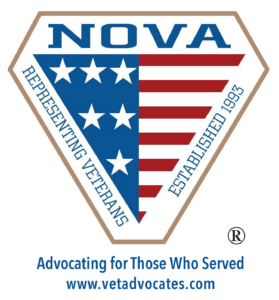Krystal Lechner, Attorney

U.S. Department of Veterans Affairs Accreditation Number: 44164
Indiana University, J.D., 2011
Indiana University, B.A. Political Science, Gender Studies, and Philosophy, 2008
Krystal enjoys the challenges and the rewards of a hard-fought VA case.
When she talks about helping veterans with mental health issues, her passion is evident.
Favorite TV shows
Parks and Recreation, The Mindy Project, New Girl, and Ted Lasso
Favorite activities
Hiking, spending time with family, traveling
Favorite books
She likes to read historical books.
“It’s such a frustrating system,” she said. “I get a lot of pleasure out of being able to help people navigate that.”
She’s seen many cases of veterans discharged from service because of adjustment disorder. They are denied disability benefits again and again because the VA doesn’t service connect for personality disorders.
“Those are hard cases to win,” she said. “But it’s so clear to you as a human that this person started having problems because of something they were struggling with during service and that continued through all these years and was being denied because of this limited view of the law.”
She remembers one veteran who was abused as a child, joined the military, and started having problems because of something that happened during service. His separation papers said he left because of adjustment disorder.
When he was out he had a hard time keeping a job. He would work for long periods of time and then not be able to work for years.
The VA kept denying him disability benefits because it said he had a personality disorder that began before his military service.
Woods & Woods connected him with a vocational expert and a psychiatrist who wrote statements explaining that his situation was typical for someone who is bipolar.
Krystal and her case managers built a case that demonstrated how well he was able to manage his life before service despite his hardships.
She said Woods & Woods has won many cases like his, but it takes time and work to make it happen.
“Seeing them finally get what they’re entitled to is super rewarding,” she said.
Advice from the attorney
Here are some of the questions Krystal considers when looking at a veteran’s case:
- What is the severity of their disability based on their symptoms (not their treatment)?
- Are they unable to work because of their service-connected conditions?
- When did they last work, and why were they not able to do that job?
“When you’re looking at a case, it’s looking at what are the actual symptoms as well as the records,” she said. “You have to be able to prove those symptoms. So, what kind of evidence can we get that the VA is ignoring, and how can we further develop that?”




